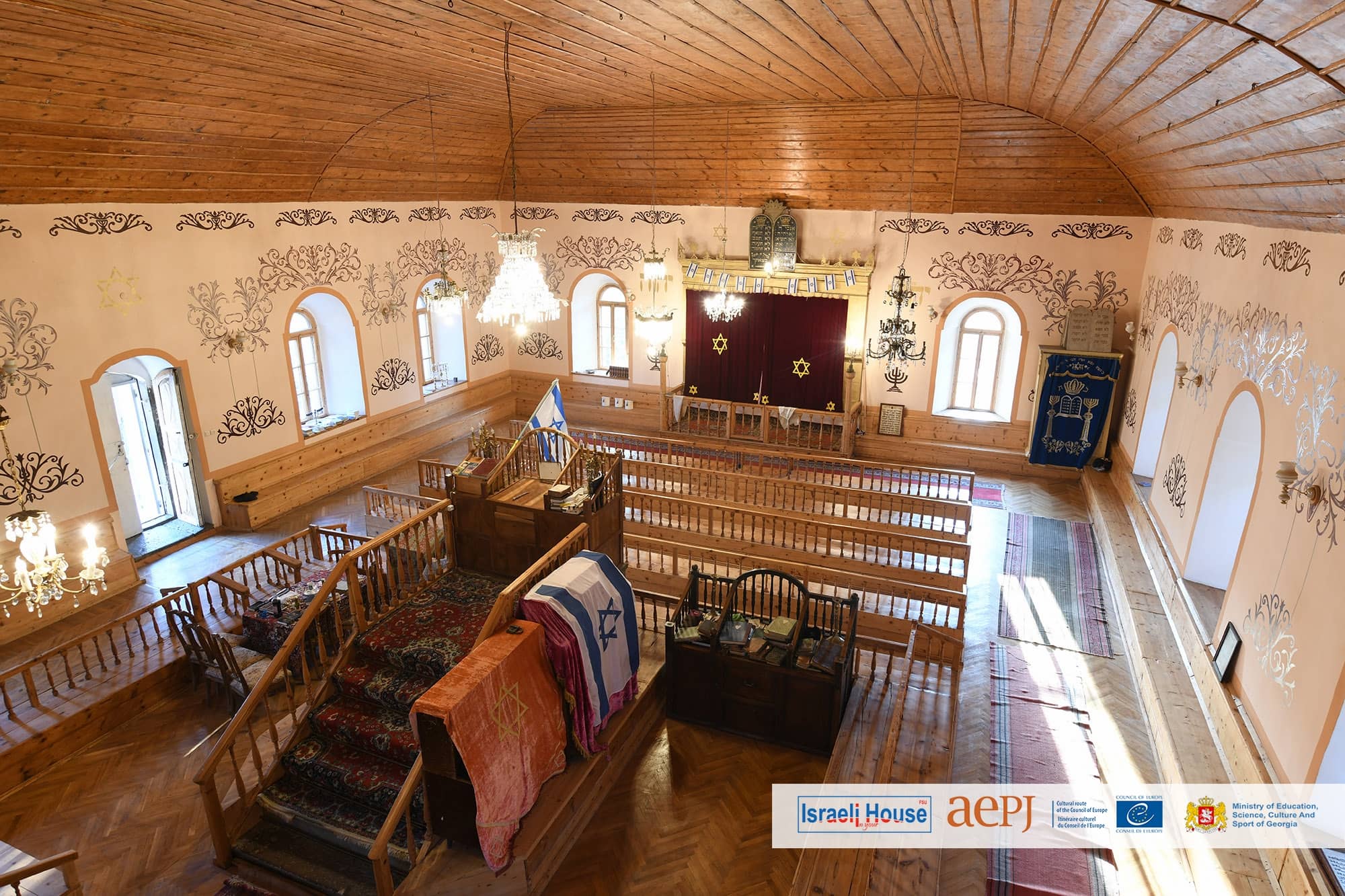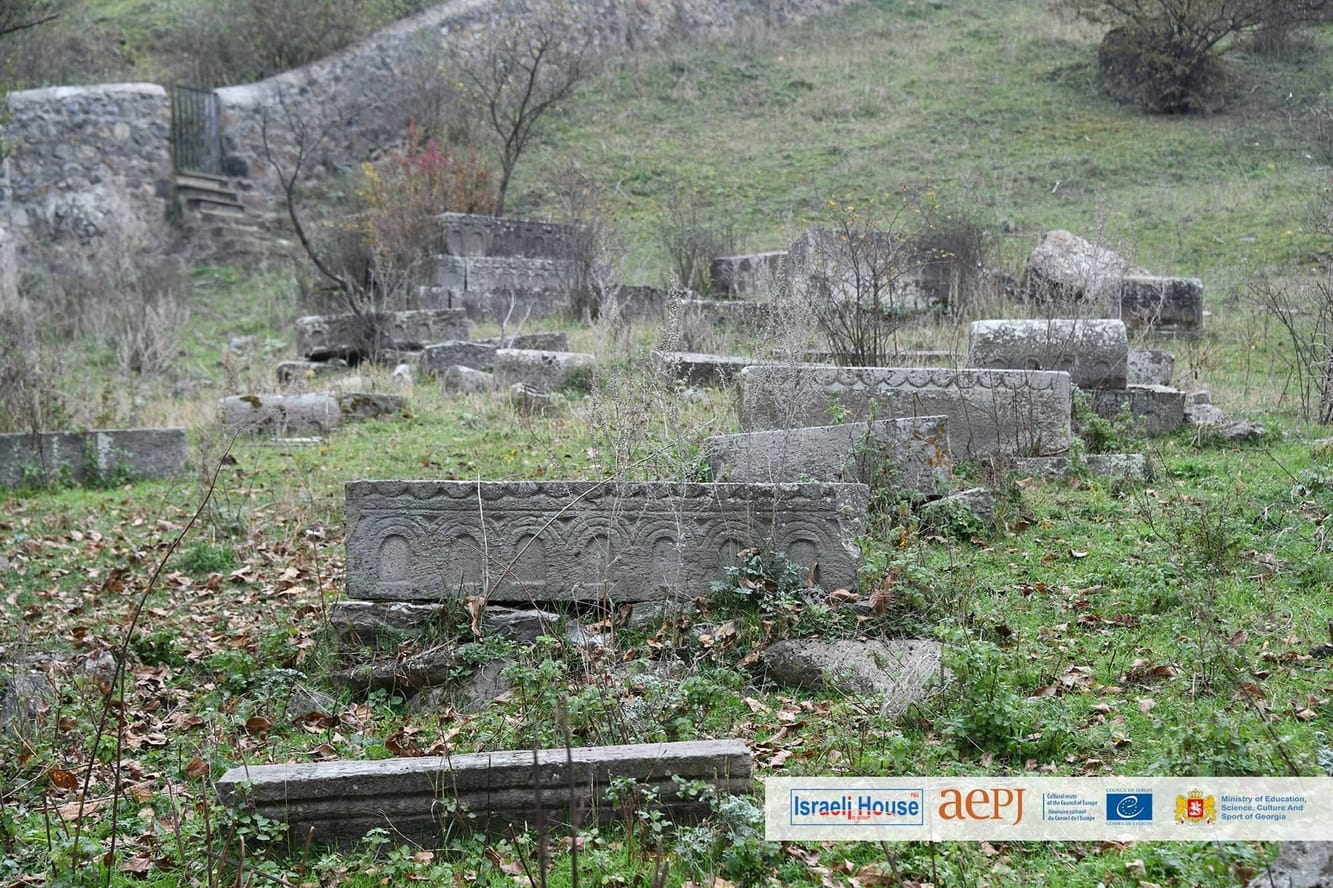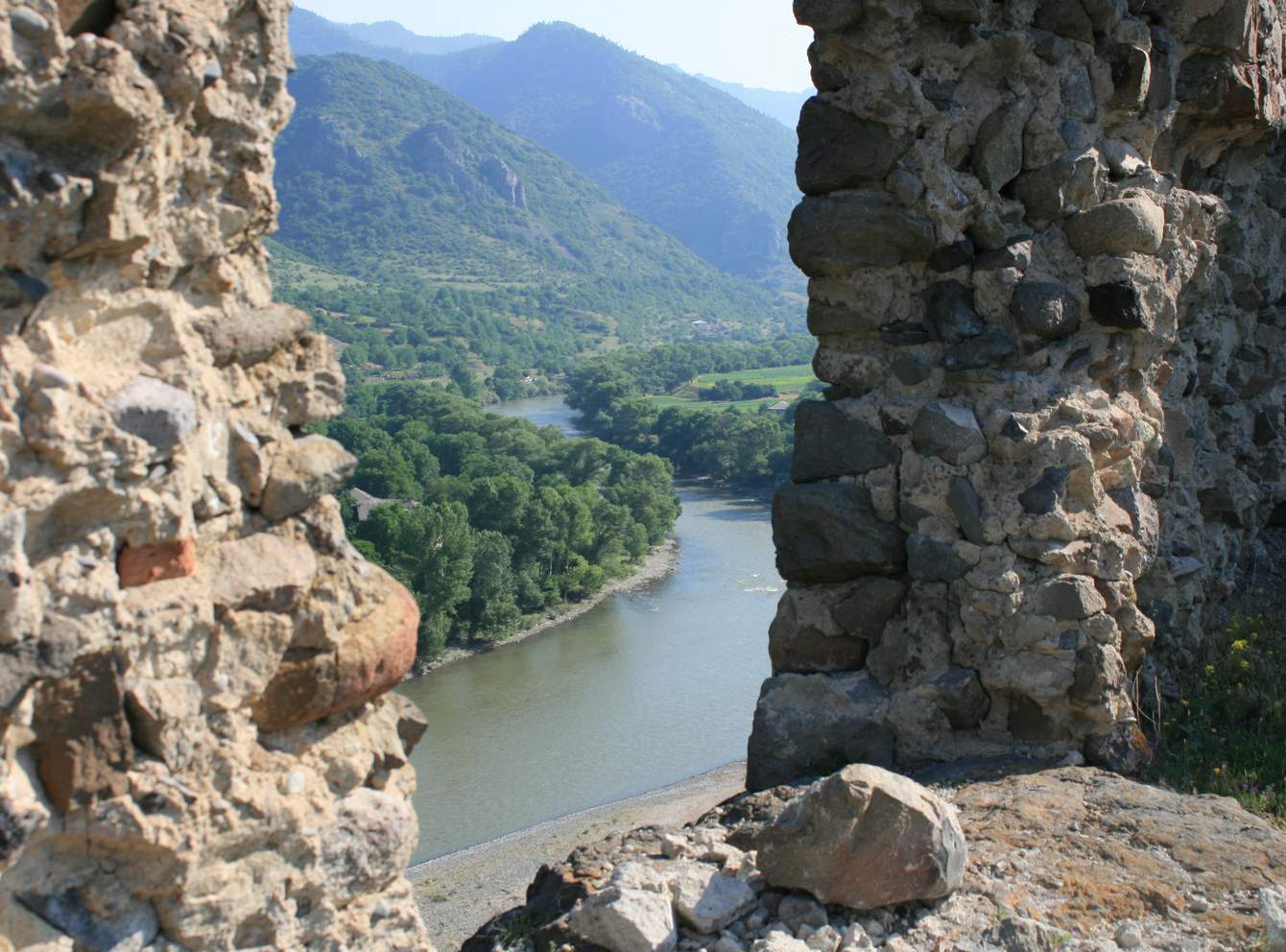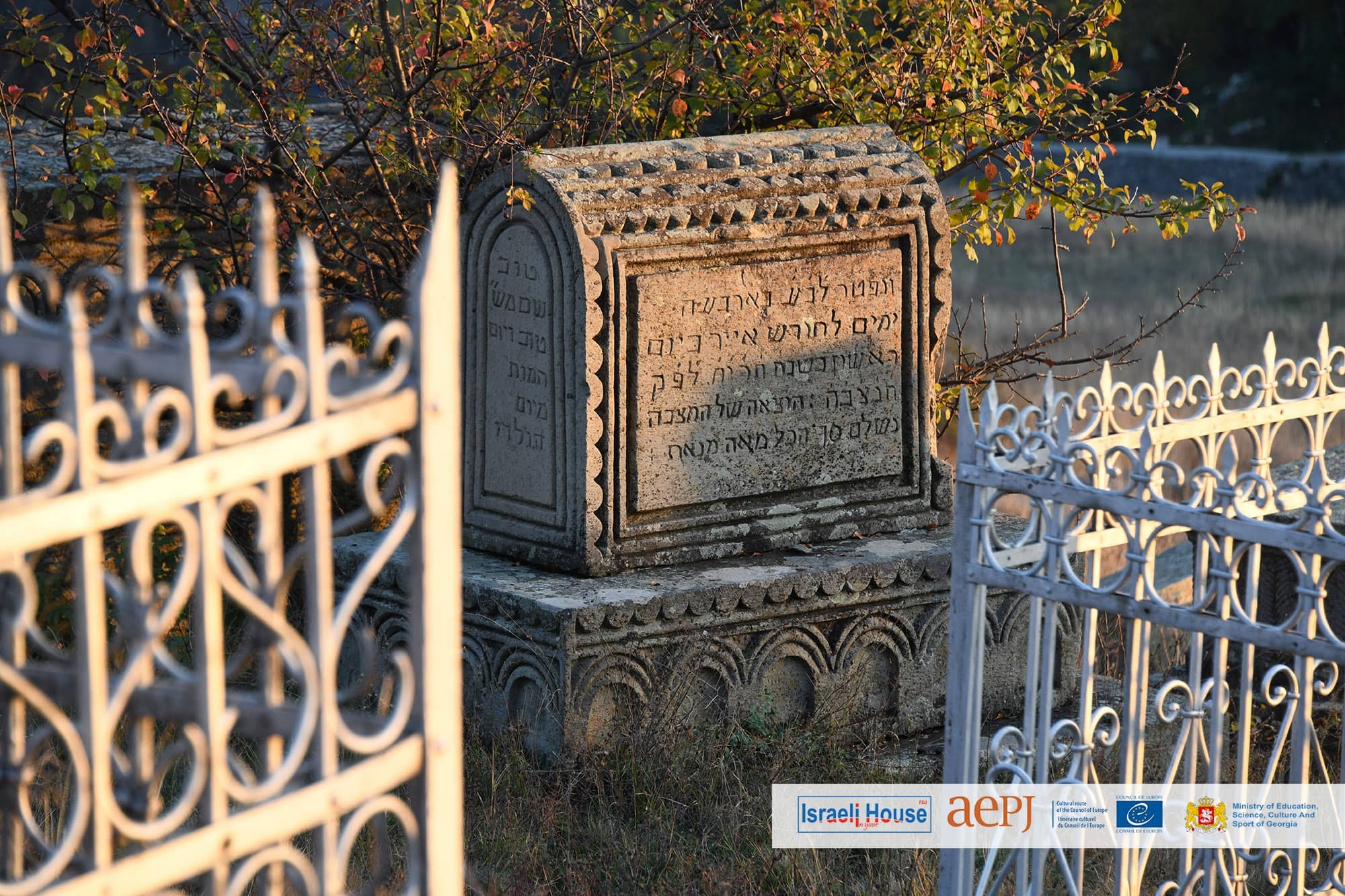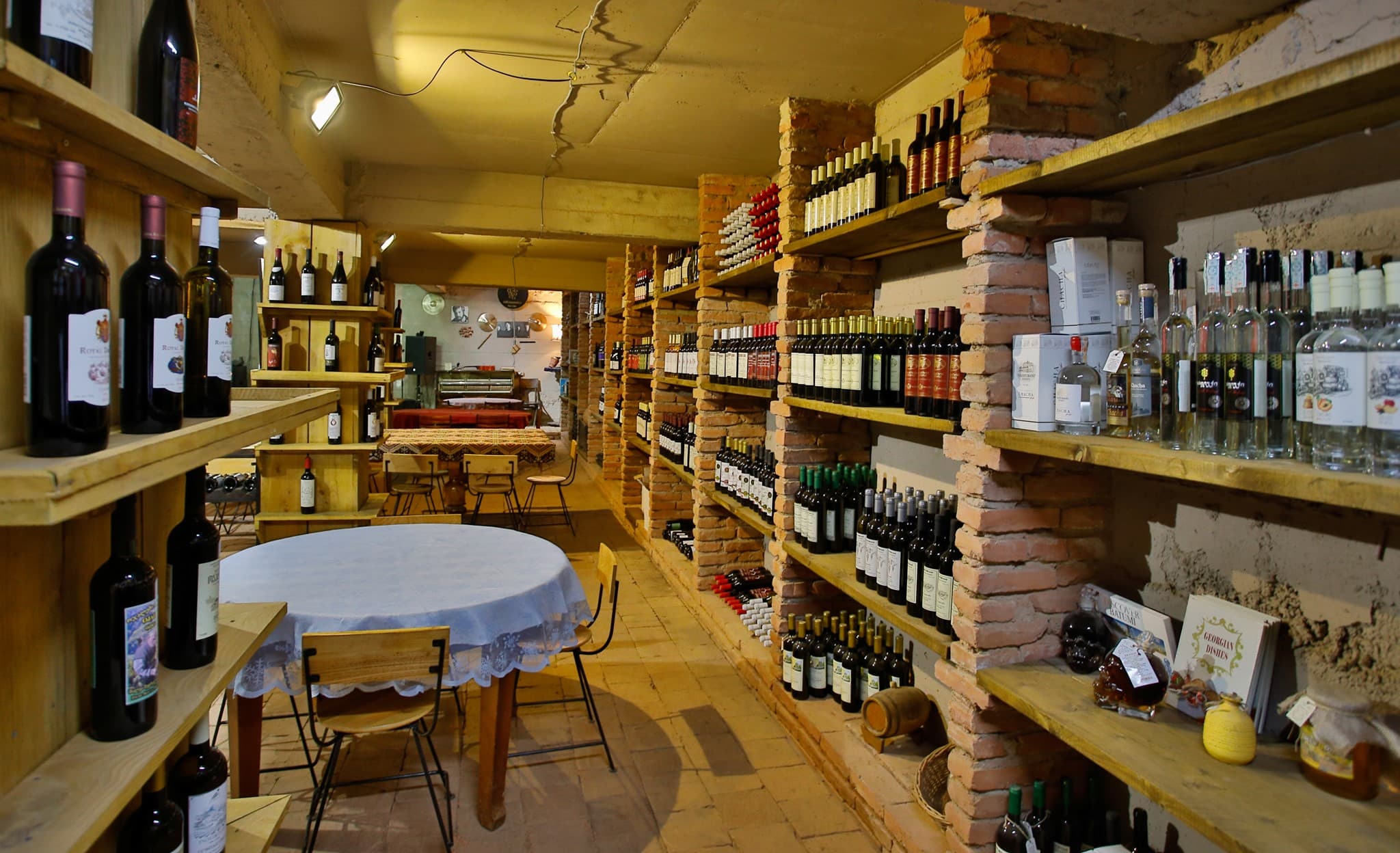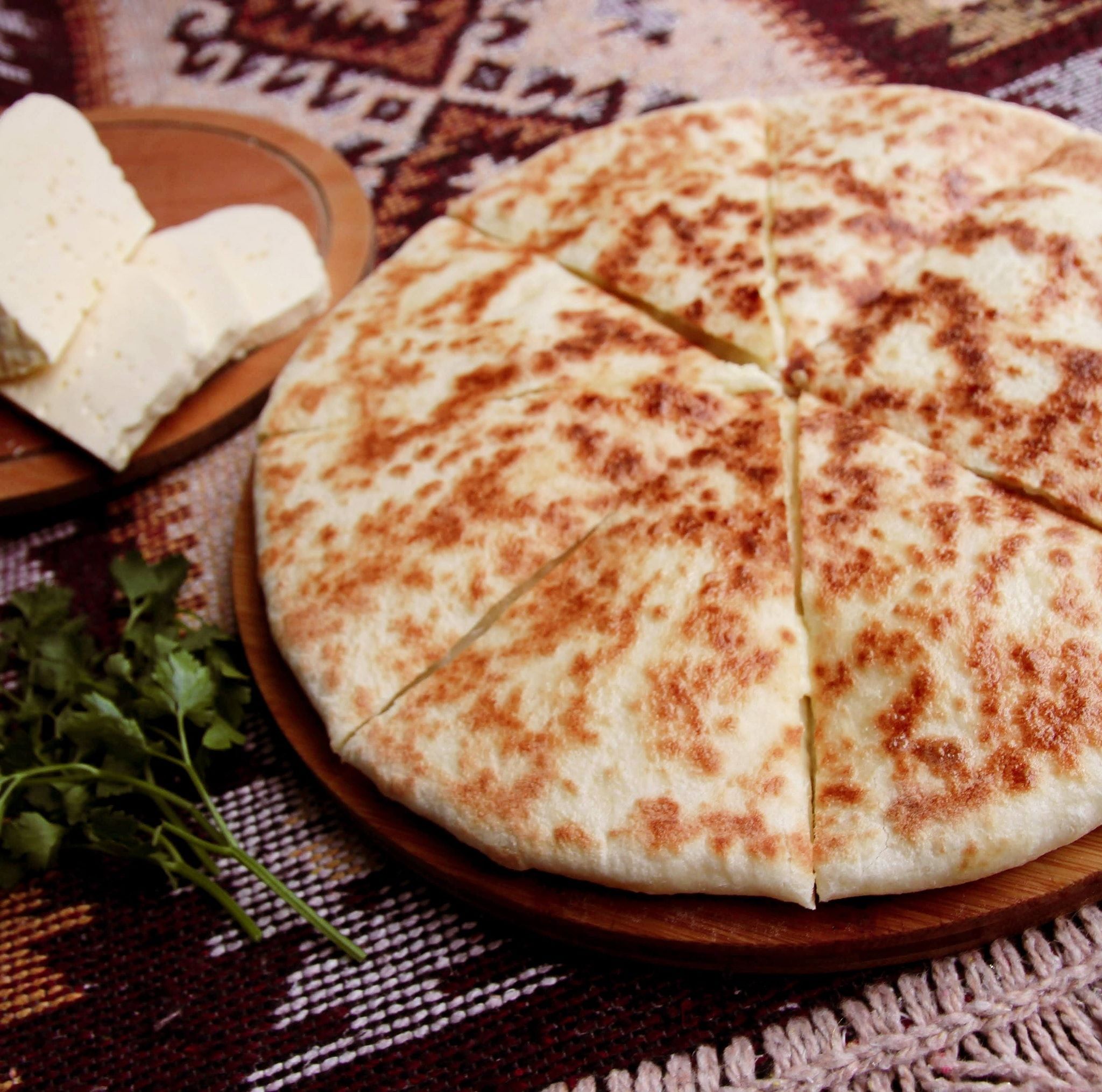The Akhaltsikhe Synagogue of the Georgian Jews, built in 1902, is located on Guramishvili Street. It consists of two large halls – the upper hall which has a women’s gallery and is sumptuously decorated with geometrical motifs. The spacious lower hall is used by men for daily prayer services and has no section for women. This building is built in neo-classical style and is made of stone. The shrine isn’t active now; it was closed in 1952, by the government of the Soviet Union. After the death of Stalin Jews asked for a permit to get the synagogue back but they could manage to return only the one built in 1986. The one built in 1902 went through many re-decorations; it was used as a movie theatre, a library, a house of culture, a billiard room and a boxing hall.
Archives: Directory listings
Directory listings
Jewish Graveyard of Atskuri
The Jewish Graveyard in Atskuri is preserved and located on the banks of the Mtkvari. The cemetery was fenced in 1957 by Jews from Akhaltsikhe. The cemetery is no longer active, but it is maintained by local Georgian Jew. Jews rarely come from Israel to visit the graves of their ancestors.
Atskuri
Atskuri, located on the bank of river Mtkvari, is a village in the Samtskhe-Javakheti region; it is the center of the village community. After Akhaltsikhe, Atskuri is the place where one of the largest Jewish communities is located. Historians assume that Jews came to Samtskhe-Javakheti from Byzantine. According to the historians, Jews experienced discrimination from locals of Atskuri, which was the reason why approximately 80 families moved to Akhaltsikhe. You can find Jewish Graveyard fragments in this village.
Akhaltsikhe Jewish Graveyard
Akhaltsikhe is a multinational area in southern Georgia. The Jewish Graveyard is preserved even though there are practically no Jews left in the town. The Graveyard itself is surrounded by a high stone fence and it is under protection. There are tombs in Akhaltsikhe Graveyard that date back to the 17th century and are one of the oldest ones in Georgia.
The Jewish Story of Kutaisi, Georgia
Kutaisi is the legislative capital of Georgia, and a current municipal center of the Imereti region. It is the 3rd most populous city and is considered to be one of the most important cities in Georgia. Jewish inhabitants have been living in Kutaisi starting from ancient times, but we do not have any official sources until the year 1644. Jews lived mainly in the north-east of the city – Kutaisi, on the left bank of the river Rioni. This place was called street Shaumyani. This area was settled more compactly by Jews than the other ones. The number of Jewish residents showed an apparent growth at the end of the 18th century but as time passed, most of the Jews left Kutaisi for their historic homeland.
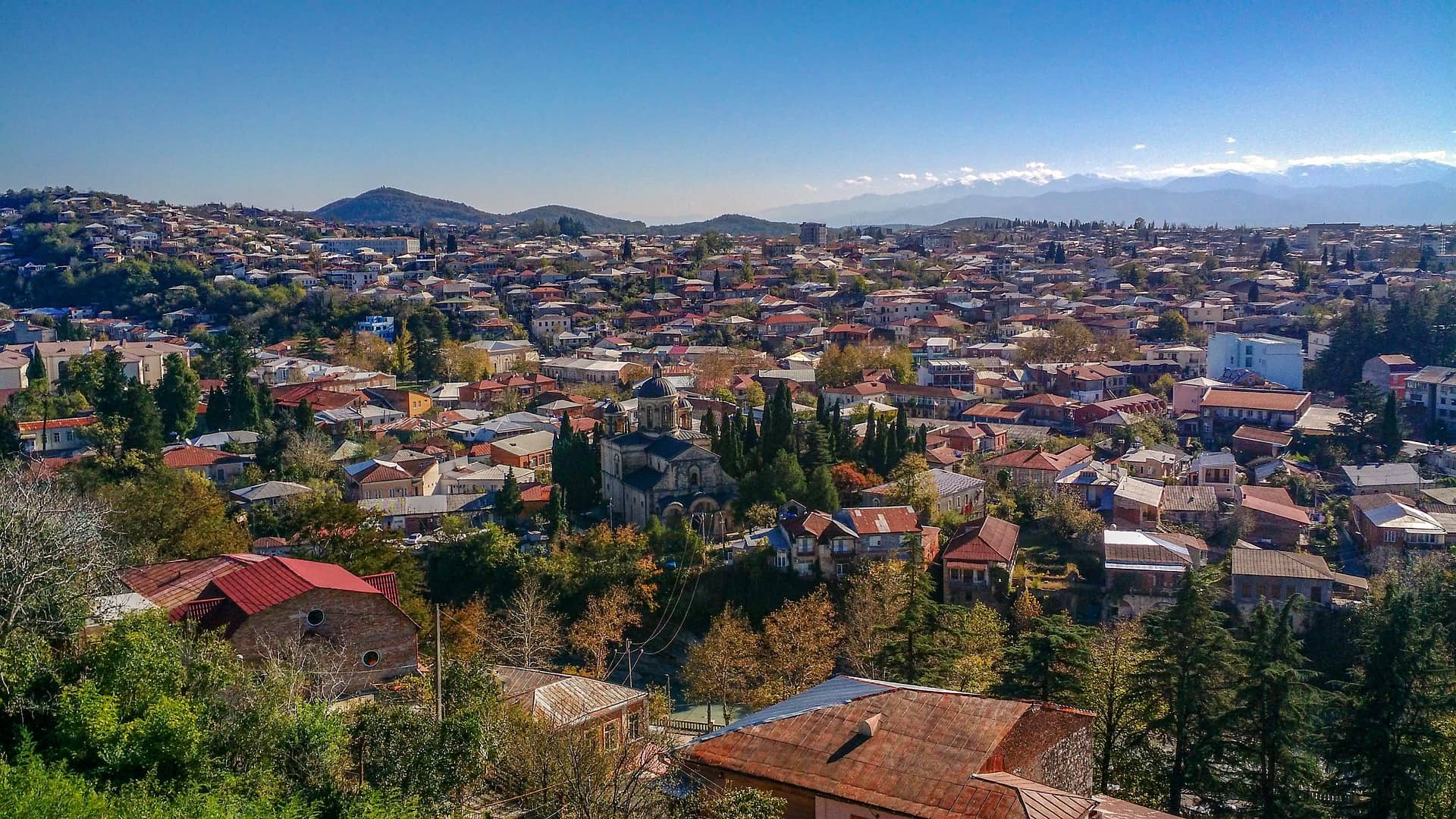
A small number of the remaining Jewish families do not live compactly, and you can rarely hear that particular speech characterizing Georgian Jews. But it can be heard in the speech of Georgians who continue to live on the street Shaumyani and will continue to be heard for many years in this area. In the year 1871 there were 4702 Jews living in Kutaisi, which was the third biggest Jewish community in Georgia. Also in the 19th century the emigration of Jews in Kutaisi caused the rise of anti-sematism, which ended with blood slander in Surami and Sachkhere. It is assumed that Moshe Montefiore was involved in it even though there is no concrete evidence that there was any connection between Georgian Jews and Moshe Monrefiore.
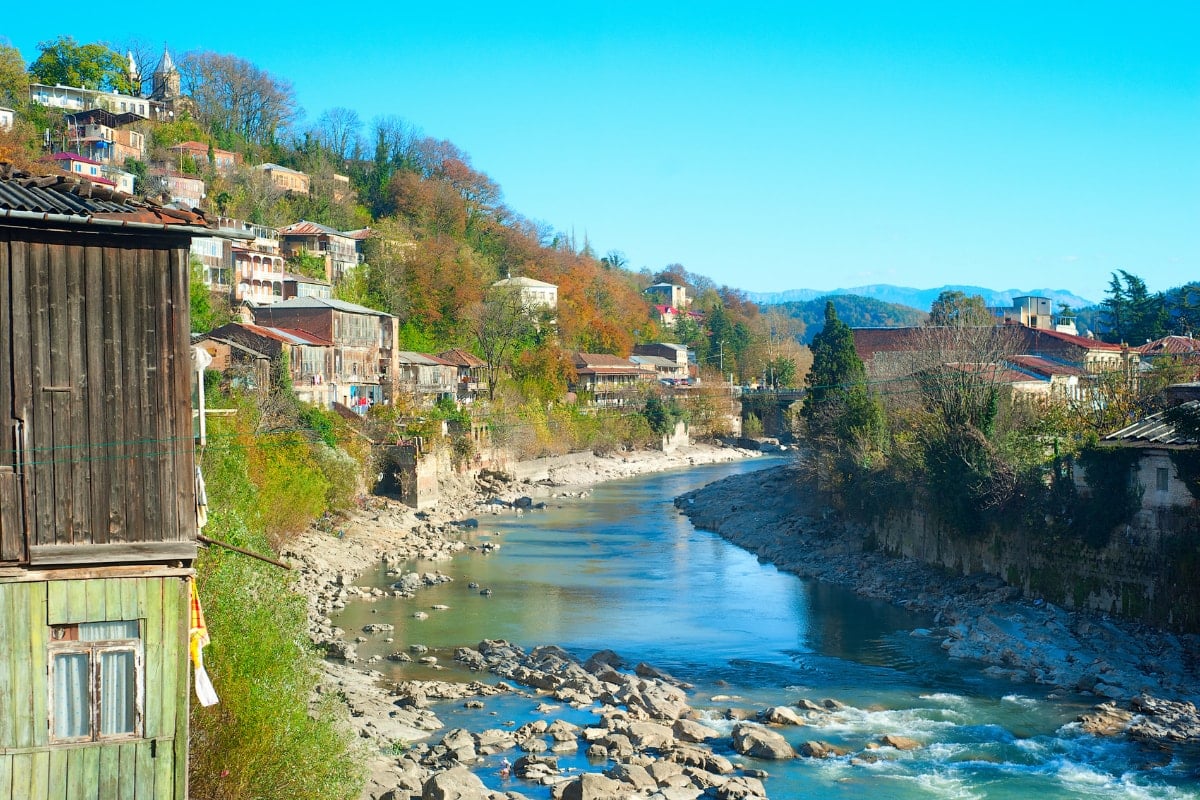
In 1937-1938 fighting against Judaism and Jewish culture spread around Kutaisi just like many other cities in the Soviet Union. The leaders of Jewish community such as: G. Deberashvili, the Rabbi of Kutaisi during 1927-1955, and the Rabbi during 1955-1965, were arrested. After World War II Jewish refugees went to Kutaisi, some stayed there, Dov Gaponov. The Jews of Kutaisi made a great contribution to the development of the city, for instance in the 19th century the Jewish inhabitants, who mostly were merchants and craftsmen, played a big role in Kutaisi’s economy. In 1919 many Jews in Kutaisi were working in the local silk factory. In 1969-1984 thousands of Jews left Kutaisi and inhabited Israel. According to Jewish agency in 1993 there were 2300 Jews living in Kutaisi, this number fell to 600 by 1999.
Best Western Kutaisi
The Best Western Kutaisi is the contemporary smile of Kutaisi, Georgia. The hotel is located in the heart of Kutaisi, Georgia’s legislative capital. The White Bridge is only a couple steps away from the hotel, which will lead you directly into the historic center of the city. Small cobbled streets and one-story buildings carefully restored; a true charm for its visitors. Warm hospitality of the locals, together with the unmatchable UNESCO World Heritage Sites, Bagrati Cathedral and Gelati Monastery; make Kutaisi a top destination for both local and international visitors alike.
Palaty
Welcoming people, delicious meals and a magical environment.
Hoegaarden
The name of the pub is related to the Belgian village of Hoegaarden. The village is considered to be the cradle of modern Belgian white beer. The production of this type of beer according to archival materials has been started here since 1445 by local monks. Pub ” Hoegaarden ” exclusively offers beer ‘Hoegaarden’, which you can taste here with a variety of delicious dishes.
Satsnakheli
Wine lives here! Here you can taste natural wines made by small wine-making companies and traditional Georgian dishes from all the parts of our country.
Toma’s Wine Cellar
Toma’s Wine Cellar is a highly rated, family-style restaurant serving traditional home-cooked food and wine to the guests.
